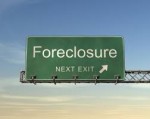
 All legislation is not good legislation. The good news is that some of it fails. Such is the case with H.B. 2590 passed by the 2013 Texas legislature but vetoed by the Governor. We mention it because it will be back in the next session.
All legislation is not good legislation. The good news is that some of it fails. Such is the case with H.B. 2590 passed by the 2013 Texas legislature but vetoed by the Governor. We mention it because it will be back in the next session.
The Bill, “An act relating to the foreclosure sale of property subject to an oil or gas lease”, addresses the age old problem of foreclosure of property subject to an oil and gas lease.
Any oil and gas lease acquired after a deed of trust is subordinate to the deed of trust. Title examiners require a subordination agreement from the lender in order to prevent termination of the lease in the event a foreclosure occurs. H.B. 2590 provided that an oil and gas lease on land that has been foreclosed would remain effective after the foreclosure sale ifthe lease was valid, and was:
-
executed and recorded in the real property records of the county before the security interest was recorded; or
-
executed and recorded in the real property records of the county after the security interest was recorded but before the foreclosure sale.
The Bill was drafted with urban drillers in mind, and would be useful where an urban unit includes thousands of home lots.
But there were hidden perils:
-
The Bill required the lessee to “indemnify the purchaser and any mortgagee of the foreclosed real property from actual damages resulting from the lessee’s operations conducted pursuant to the oil or gas lease”.
-
The Bill provided that foreclosure sale “terminates and extinguishes the lessee’s right to use the surface … “.
Supporters argued that if property is foreclosed and there is no subordination agreement the lease would be lost anyway! Correct, and as a result the Bill had great practical application.
Critics disagreed with increased indemnification liability, and were unsettled about the wording of the surface provision. (We call them “critics” and not “opponents” because the Bill was discovered by many industry insiders only after it had passed with no opposition. The sponsors denied any monkey business.)
The Bill created more questions than it answered. For instance, it was writen as if the surface owner always owns 100% of the minerals, and not only portion. This is uncommon in rural acreage. Also, the loss of surface rights could be contrary to the mineral estate’s dominance in tracts covered by more than one lease (where the foreclosure would be of less than 100% of the minerals).
In any event, the Bill died. Expect it to be re-introduced in the next session. If so, it will not escape scrutiny and may not have the opportunity to meet our new governor.